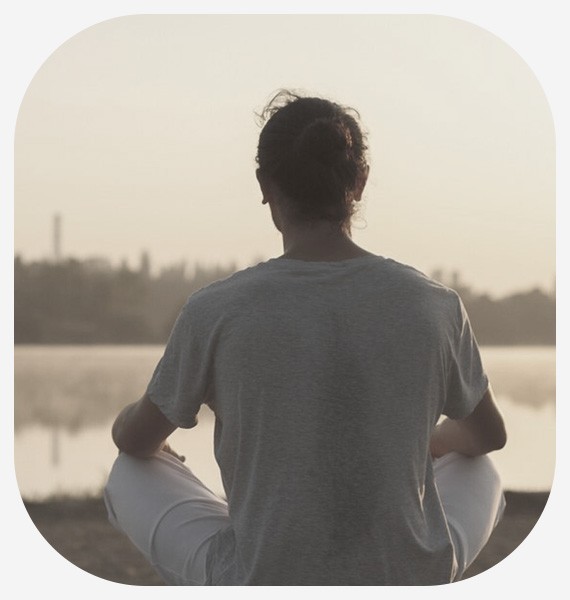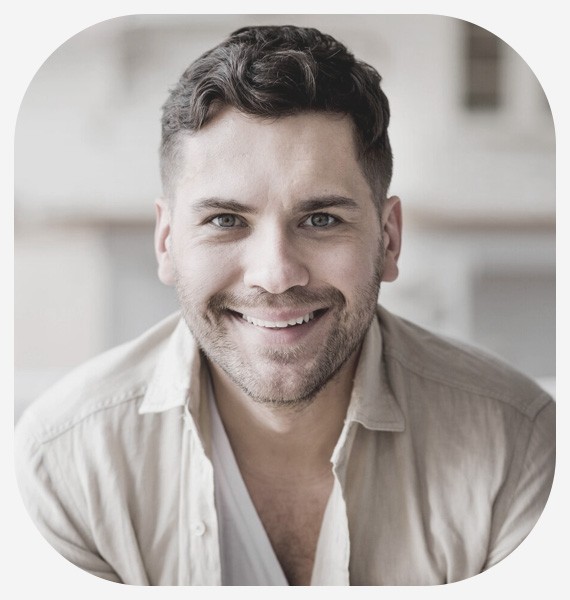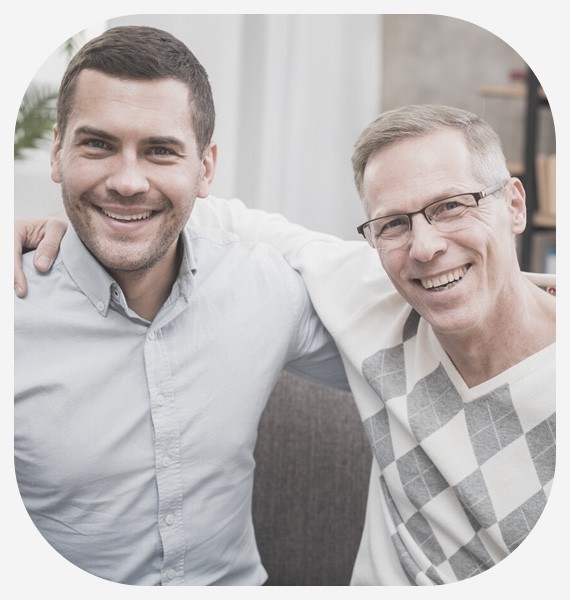Are you ready to reclaim your life, one moment at a time?
I believe the tools for living a life of clarity, joy, and freedom should be accessible to everyone.
Look around: we live in a world that is loud, fast, and often isolating. I know this leaves so many of us feeling overwhelmed, disconnected, and perpetually searching for a grand, dramatic solution to fix everything. We are told we need a breakthrough, a seismic shift, or a sudden change in luck.
But the beautiful truth I have had the privilege of studying and sharing for years is much simpler: Your life is not one long, complicated timeline. It is a series of moments.
The Chain of Moments is not a theory. It is a practical, gentle path back to the natural state you were born with—a state of inner peace and effortless presence. It doesn't ask you to change who you are; it simply teaches you to meet each moment with awareness instead of old habits.
The Chain of Moments: Philosophy meets practice
This program is not based on generic self-help principles; it is built on over 25 years of dedicated study and practice into the nature of presence, memory, and the unconscious mind. The Chain of Moments is the proprietary methodology developed by Brian Chris to move individuals from a life of autopilot to one of conscious creation.
While many seek external change, this method provides the structured path to achieve deep, sustainable internal transformation. The coaching is the direct, guided application of the principles found in Brian Chris's work, designed to help you interrupt the invisible chain of the past and anchor yourself permanently in clarity and purpose. You are not just learning theory; you are installing a proven, life-long system.
Why coaching?
You may have read the philosophy, but shifting from understanding to doing requires structure. The Chain of Moments provides the map; our Group/Online Coaching is the structured, supportive journey designed to accelerate your progress. I provide the methodology, the tools, and the guidance; you commit to transforming theory into integrated, daily habit.
If you are tired of being governed by the echoes of your past, and if you feel a quiet pull toward genuine ease and clarity, this is your moment.
I invite you to explore the simple, powerful steps we take together to create irreversible internal freedom.
Real transformation through the Chain of Moments
I found my pause
"I used to be controlled by my reactions. The smallest things would trigger me into anger or anxiety. Now, I have space. I have the conscious pause, and that freedom is the greatest gift. This is the only method that truly changed my internal operating system."
Sarah L., Copenhagen
The relief of letting go
"I spent years carrying guilt and worry about the future. Brian’s coaching gently showed me how to forgive myself and surrender the need for absolute control. I feel lighter, more grounded, and genuinely joyful for the first time in a decade."
Mikael R., Malmö
Clarity and confidence are now automatic
"The 12 weeks broke the patterns that were limiting me. I now make clear, purposeful decisions based on the present, and without seeking approval from others. My confidence isn’t forced; it’s a natural byproduct of self-respect. Truly life-changing work."
Elina H., Aarhus

Observe your thoughts
The witness, not the prisoner
I want to share the first fundamental skill we cultivate in The Chain of Moments: learning to simply observe your thoughts. I know how utterly exhausting it is to believe every worried, self-critical, or anxious suggestion that passes through your mind. Most of our suffering, I've found, comes from giving our thoughts immediate authority. We mistake the constant stream of mental chatter for our true self. In our coaching, I help you recognize that your thoughts are often just echoes of your past—old programming playing on repeat.
This is a gentle, powerful shift. You are not trying to stop thinking; you are training yourself to become the witness, not the content. You step back and observe the thought without judgment. This immediate separation from mental noise is the key to establishing your inner sanctuary and reducing chronic stress. When you see a thought as a passing cloud, it loses its power to control you. This is the simple, honest path to achieving greater clarity and establishing that you are the conscious guide of your experience.

Handle your emotions in real-time
Meeting feelings with presence
Emotions are essential energy and vital information, yet we are rarely taught how to process them safely. Many of us default to two draining habits: either reacting impulsively and escalating the situation, or suppressing the feeling until it becomes an overwhelming burden. In The Chain of Moments, I teach you the practical tools to handle your emotions in real-time by meeting them with presence.
This means that when anxiety, frustration, or sadness arises, you don't fight it, nor do you let it take over. You simply pause, acknowledge the feeling, and allow it to move through you. This skill ensures you stay grounded and responsive, preventing small feelings from escalating into crises that derail your day. We focus on developing emotional resilience, so your stability is not dependent on external circumstances. By honoring your emotions in the moment, you stop dragging emotional debt into the next, ensuring that you choose calm over chaos.

The power of the conscious pause
The moment where freedom is born
When life throws us a challenge, the nervous system often goes into overdrive, reverting to old, automatic habits. We react before we think. I believe the greatest single source of freedom in your life is the tiny, essential gap between stimulus and response—the conscious pause. Through our guided exercises, we train you to install this pause as a non-negotiable step.
This is where you interrupt those automatic cycles of fear, conflict, or overthinking. It is the moment you choose conscious response over unconscious reaction. By repeatedly creating this space, you gain the ability to understand the power of the moment and guide your own behavior, rather than being dragged along by momentum. When you choose to pause, you are choosing to be conscious, accept the situation, relax, and let go of immediate tension. This fundamental practice is the engine that drives all change in The Chain of Moments.

Unlearn what no longer serves you
Dismantling the invisible programming
I recognize that the struggle you feel is often the result of living too long under the weight of layers—outdated coping mechanisms and fears—that do not belong to you. We carry these burdens because they once kept a younger version of us safe. But now, they are the chains that limit our potential. Our coaching provides the framework to systematically unlearn what no longer serves you and break habits and beliefs that limit you.
This is the gentle but deep work of releasing your limiting beliefs. These beliefs are not facts; they are simply mental boundaries you constructed years ago for protection. We shine a light on them, challenge their validity, and give them back their original meaning as simple history. By consciously letting go of these old paradigms, you literally open up a wider world of possibility. This is your invitation to step fully into your authentic self, unburdened by old fears, and finally be open for change.

Forgive yourself and heal
Releasing the weight of past judgments
One of the heaviest burdens we carry is the constant internal judge—the part of us that holds onto old mistakes, regrets, and perceived failures. I coach you through the profound, liberating process of forgiving yourself. Holding onto past judgments is a heavy emotional anchor that drains your energy and prevents you from fully showing up in the present.
The path to healing is not about ignoring the past; it's about changing your relationship with it. By accepting the truth that you did the best you could with the awareness you had at the time, you release tremendous emotional power back into the present moment. This practice allows you to end situations when possible, closing those painful emotional loops forever. When you consciously choose to forgive yourself, you stop dragging old guilt into every new opportunity, allowing you to live with greater authenticity and peace.

Release your fears and worries
Stepping out of survival mode
I know that fear often masquerades as wisdom, telling us to stay small, avoid risk, and worry constantly. But chronic fear and worry, often rooted in the significance of the past for the present, narrow your life and potential. In The Chain of Moments, we learn to gently release your fears and worries.
This is achieved by recognizing the precise moment fear activates and providing you with the tools to choose courage instead. We work to identify where you can remove negative things from your life—whether it's draining relationships, news consumption, or unnecessary commitments. The process is about helping you stop making decisions based on old survival patterns and start making choices based on your current clarity and purpose. By embracing this practice, you gain the quiet confidence to be open for change and step into the opportunities that fear once blocked.

Love, respect, and trust yourself
The ultimate anchor of stability
If you are constantly looking outside yourself for validation or approval, your life will always feel unstable. I believe the ultimate anchor of stability is internal, and it is built on three pillars: love yourself, respect yourself, and trust yourself. This foundation is not about ego or arrogance; it's about establishing profound self-integrity. We achieve this by focusing on one simple, powerful practice: keep your promises to yourself.
When you consciously keep the small commitments you make to yourself—like going for a walk, taking a break, or simply speaking your truth—you consistently reinforce your self-trust. This commitment is what allows you to be true to yourself in all situations, without the stress of trying to meet external expectations. When this anchor is firm, your decisions become clearer, your reactions calmer, and your confidence becomes natural, rather than forced. This inner sanctuary is where true power resides.

Surrender and trust the process
Flowing with life, not fighting it
I know the anxiety that comes from the constant, exhausting need for absolute control over uncertain outcomes. Much of our mental energy is wasted resisting things we cannot change. In The Chain of Moments, we explore the art of flow and surrender. This is not about giving up; it is a strategic act of wisdom, based on the principle that nothing is accidental.
I help you gently let go of the need to micromanage every external result. This shift from fighting life to learn to flow with life significantly reduces resistance and chronic stress. When you surrender to the universe and have trust, you stop viewing uncertainty as a threat and start viewing it as an opportunity for growth and discovery. This is the moment you replace anxiety with resilient trust, conserving vast amounts of emotional energy and allowing your life to unfold with greater ease.

Decide with clarity and purpose
Conscious choice, not fear-based reaction
When our minds are cluttered with old worries and fears, our decisions are often reactionary, leading to outcomes we didn't truly want. As your inner noise subsides through our work, your authentic values and purpose become brightly clear. I provide the framework to help you take decisions with clarity and purpose, ensuring your choices are guided by alignment, not fear or external pressures.
This involves integrating your values into your daily actions and learning to revise your goals regularly to ensure they still serve your highest self. We use the clarity gained in the present moment to intentionally design your life plan based on The Chain of Moments. This is how you reclaim creative authority over your life. You stop drifting through life based on default programming and start living with the intentionality that brings profound fulfillment.

Building connection and gratitude
The softening of the heart
Relationships are often complicated by the invisible burdens we carry—especially expectations. I coach you on the liberating practice of learning to expect nothing from anyone, recognizing that expectations are a primary source of unnecessary suffering and disappointment. When you release expectations, you free people to simply be themselves, and you free yourself from resentment.
Instead of expectation, we cultivate gratitude. By focusing on the profound wisdom and strength gained through our internal work, we naturally open ourselves to the powerful practice of help others to help yourself. This mindset ensures you avoid comparing yourself to others and instead focus on genuine, present connection. This shift softens the ego, deepens your empathy, and allows you to find true, reciprocal joy in your interactions, all supported by the quiet magic of the power of the smile.

Change your vocabulary and questions
Reprogramming your inner dialogue
The language you use, especially in your own mind, is incredibly powerful. It literally structures your reality. Our program coaches you on using intentional language and training yourself to ask better questions, subtly redirecting your focus away from deficiency and toward possibility. Instead of asking, "Why does this always happen to me?" we learn to ask, "What clarity does this moment offer me?"
This practice ensures you change the way you perceive information. You realize that your mind is not a neutral observer; it is a powerful tool shaped by your questions. By learning to change your questions, you naturally guide your mind toward better answers, ensuring better awareness in every moment. This is a quiet, profound form of daily internal reprogramming that dramatically shifts your mood, your outlook, and your capacity for creative problem-solving.

Transforming past pain into wisdom
Your past as a teacher, not a jailer
Many people carry their past like a heavy weight, dragging it through every decision. The Chain of Moments teaches you to carry your past differently: not as something that limits you, but as something that guides you. This profound shift happens the moment you stop asking, "Why did this happen to me?" and begin asking questions that open your awareness instead: "What did this experience actually teach me?" and "What strength did it develop in me?"
I guide you in recognizing that the pain and struggle were formative—they were not accidental; they were part of your growth. By reframing past experiences, you transform old memories from emotional liabilities into sources of strength, resilience, and deep personal wisdom. This is the final liberation: when your past becomes your greatest teacher, it loses its emotional charge, and you are free to live unburdened in the present.

Seeing life as an infinite chain of moments
The vision of wholeness
When we begin this journey, we often see life as a series of disconnected events—successes, failures, problems, and waiting periods. The final vision I share in The Chain of Moments is the realization that your life is, in fact, an infinite chain of moments. Each moment is perfectly connected to the next, not through fate, but through your choice of presence.
When you truly master the conscious pause and the skill of self-support, the feeling of being fragmented or searching for a missing piece fades away. You recognize that your wholeness is accessible simply by choosing awareness right now. You stop living in a state of perpetually preparing for the future or dwelling on the past, and you gain the profound, liberating clarity of the present. This vision allows you to live fully, feel connected deeply, and find enduring purpose in the present. You move from simply existing to actively creating your experience, realizing that the greatest adventure is the one happening in this very moment.
Begin the chain today
The freedom you have been waiting For
I understand that committing to internal change can feel daunting. But when you strip everything away—the techniques, the insights, the reflections—The Chain of Moments is ultimately about one thing: Freedom.
Not the loud, dramatic kind, but the quiet, steady freedom that slowly reshapes your entire life.
It is freedom from automatic reactions, freedom from old fears that once dictated your decisions, and freedom from unnecessary suffering. You stop making situations heavier than they are, and you stop punishing yourself for mistakes you have already learned from.
This gives you the most powerful freedom of all: The freedom to choose.
You gain the freedom to choose your thoughts, your reactions, your meaning, and your next step. You stop being a prisoner of your past, and you start becoming a creator of your present. This is why our structured coaching program is so effective: it provides the consistency and accountability necessary to make these choices a daily habit.
You deserve to live a life guided by clarity, joy, and peace. You have carried the weight of the past long enough. The only thing standing between you and the lighter, more purposeful life you desire is the commitment to show up for yourself, one moment at a time.
If you feel the resonance of this truth—if you are tired of living on autopilot and are ready to claim the effortless flow that comes with presence—then I sincerely invite you to join our program.
The Chain of Moments is the simple truth: Your freedom exists in the next moment, and the next, and the next.
I look forward to guiding you on this essential journey, one moment at a time.




